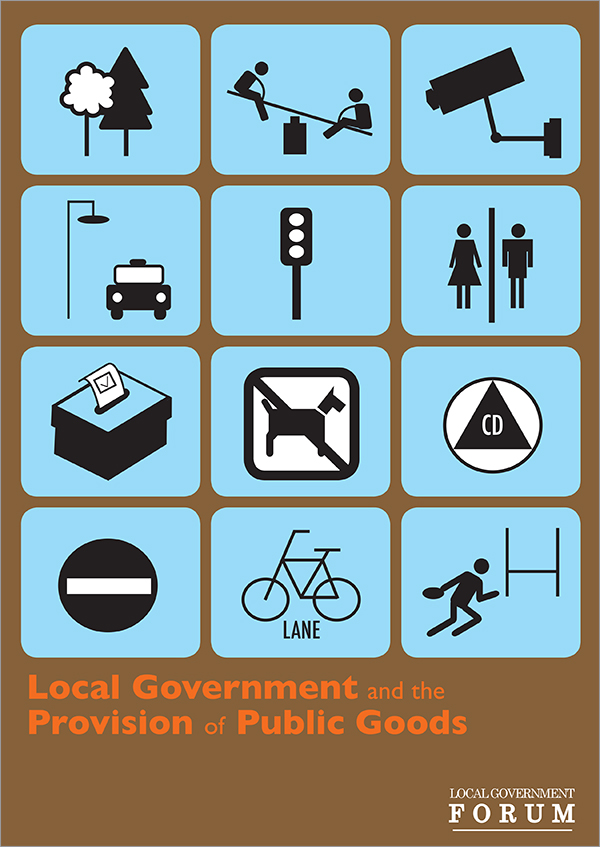The purpose of this report is to provide a primer on the core role of local government: the provision of public goods.
Governments have to distinguish their roles from those of the private sector and prioritise their plans because the demands on them are unlimited, but resources are scarce. There are some tasks that it is vital for governments to perform, and governments need to excel in them. There are a great many more tasks in a community that citizens can better undertake themselves through market transactions and other voluntary arrangements.
One of the two primary functions of government is to ensure the efficient provision of public goods (the other is to maintain order). Both national and local governments have public good responsibilities.
The distinctive features of public goods are, first, that non-payers cannot easily be excluded from receiving the benefit that others pay for (that is, public goods are susceptible to free riding) and, second, that one person's consumption does not reduce the consumption opportunities of others.
Goods with both of these characteristics are likely to be under-supplied by private firms or not supplied at all (unless under contract to a government entity). Firms cannot provide the level of such goods and services that would maximise net benefits across the community and still recover the full costs of supply.
Most services provided for the public do not have public good characteristics. They are provided by firms and funded from the revenue raised. These are termed private goods. If it is cost-effective to charge directly for a service, it is likely to be a private rather than a public good.
An examination of local government activities would identify many that are clearly private good in nature, such as ports, airports, off-street car-parking facilities, cinemas, forestry and farming. Economic analysis suggests that community well-being would be enhanced if councils exited from such activities.
Local Government and the Provision of Public Goods
27 November, 2008



